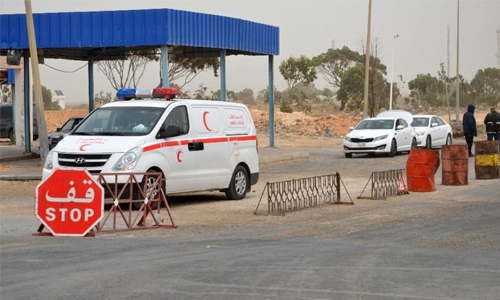Tunisia extends state of emergency
Tunis: Tunisia on Tuesday extended by three months a state of emergency imposed following jihadist attacks and hosted talks with Libya's neighbours on the growing threat posed by the Islamic State group.
Authorities also decided to reopen the border with Libya, which had been closed two weeks ago after a deadly raid on the frontier town of Ben Guerdane which they blamed on the jihadist group.
Analysts and officials have said the raid was an attempt by the extremist organisation to spread its influence from Libya across the border into Tunisia.
The North African nation, the birthplace of the Arab Spring, has suffered from a wave of jihadist violence since the 2011 revolution that ousted longtime dictator Zine El Abidine Ben Ali.
IS claimed brazen attacks last year on the National Bardo Museum in Tunis and a beach resort, and a November suicide bombing in the capital, that killed in total 59 tourists and 12 presidential guards.
After the November attack targeting the presidential guards authorities declared a state of emergency which President Beji Caid Essebsi decided to extend for the third time on Tuesday.
Essebsi "has decided after consultations... to extend the state of emergency for a period of three months from March 23," two months more than the previous extension, his office said in a statement.
The measure comes just two weeks after seven civilians and 13 security personnel were killed in coordinated jihadist attacks in Ben Guerdane.
Forty-nine jihadists were killed by security forces in clashes and raids after the attacks.
On Monday night the interior ministry said authorities had arrested 12 members of a cell suspected of having helped "terrorists" travel to Libya.
Ben Guerdane, home to 60,000 people, has been under nighttime curfew since the March 7 attacks, but two crossings with Libya were reopened on Tuesday.
The reopening is seen as crucial for cross-border trade, a mainstay of the economy of Tunisia's largely impoverished southern provinces.
Related Posts

